Artificial Intelligence (AI) has emerged as a transformative force in the rapidly evolving landscape of the legal profession, reshaping how lawyers approach their work and interact with clients. AI for lawyers considers how the legal industry grapples with complex cases, vast amounts of data, and the need for precision, making it a game-changing phenomenon. Today, lawyers increasingly leverage advanced technologies to enhance efficiency, accuracy, and productivity.
One of the critical aspects of this transformation lies in AI for lawyers, where machine learning algorithms, natural language processing, and data analytics are harnessed to streamline various legal tasks. From conducting in-depth legal research to drafting intricate legal documents, AI-powered tools are revolutionizing traditional methods, enabling lawyers to focus more on strategy and client interactions rather than time-consuming administrative tasks.
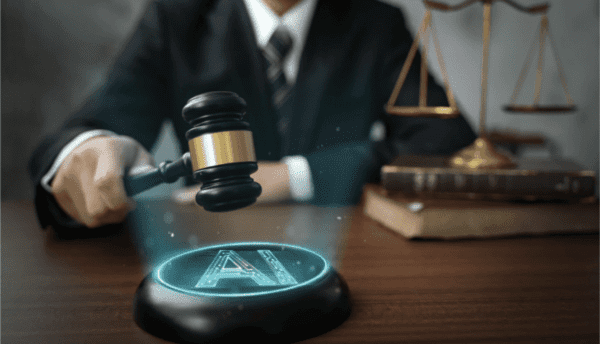
AI for lawyers has ushered in a new era of legal innovation. Lawyers can now harness the power of intelligent systems to process massive volumes of legal data, identify patterns, and predict outcomes with previously unattainable accuracy. This expedites the decision-making process and allows legal professionals to offer more informed counsel to their clients.
Additionally, the implementation of legal AI solutions is optimizing document management, contract analysis, and even client communication. With AI-driven chatbots offering instant responses to legal queries and sophisticated algorithms aiding in complex contract reviews, the legal industry is experiencing a paradigm shift, where the fusion of legal expertise and artificial intelligence is redefining the essence of legal practice. Here, we will explore the myriad ways AI is shaping the future of law, making legal processes more efficient, accessible, and responsive to the evolving needs of clients and practitioners alike.
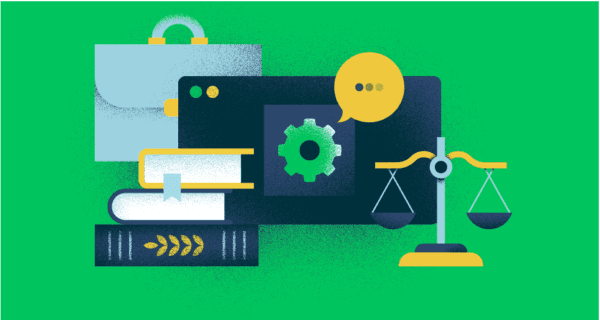
AI for lawyers in Legal Research
AI for lawyers is a powerful ally in legal research, revolutionizing how you explore information and precedents. Your research endeavours are faster and more efficient, thanks to AI-powered search engines, tools, and platforms tailored for legal professionals. Imagine delving into a vast sea of legal documents and rulings with precision and speed, all made possible through the innovations of AI for lawyers.
With AI-powered search engines, you no longer wade through endless pages of results; instead, you swiftly pinpoint the exact cases, statutes, or regulations you need. These engines, supercharged by advanced algorithms, analyze your queries in natural language, comprehending nuances and context to deliver highly relevant results. Specialized tools employing cutting-edge natural language processing sift through mountains of legal text, summarizing intricate details and presenting concise overviews and saving you valuable time.

Picture having an assistant that finds pertinent information and analyzes it, providing you with insightful patterns and connections, all achieved through the wonders of legal AI solutions.
Imagine accessing comprehensive platforms where AI fetches information and predicts potential outcomes based on historical data. These platforms, designed specifically for legal professionals, empower you to make strategic decisions backed by data-driven insights. In this landscape, AI is not just a tool; it is your indispensable partner, enhancing your legal research capabilities and transforming the way you approach cases, all while ensuring that you stay at the forefront of legal innovation.
AI-Powered Contract Analysis
Incorporating cutting-edge AI technologies, notably Natural Language Processing (NLP), into contract analysis revolutionizes how legal professionals like you approach complex legal documents. Through the lens of AI for lawyers, envision a scenario where deciphering the convoluted language of contracts is not just streamlined but profoundly enhanced. AI-powered systems, constituting the core of AI for lawyers are adept at understanding the intricate web of legal language.
By harnessing NLP, these systems meticulously dissect every clause, unravelling the complexities to provide you with a nuanced understanding of the contract’s content. This depth of comprehension ensures you can navigate the document precisely, swiftly grasping the subtle nuances that might have otherwise eluded you.

These advanced legal AI solutions are instrumental in identifying potential risks embedded within contracts. Picture having an intelligent assistant that scrutinizes agreements meticulously, recognizing the obvious pitfalls and the subtle, less apparent dangers. NLP-driven AI technologies excel at identifying patterns and irregularities, ensuring that you are acutely aware of all potential risks. This heightened risk awareness empowers you to confidently engage in negotiations and agreements, knowing you have a comprehensive understanding of the associated legal implications.
Beyond risk identification, AI-based contract analysis also guarantees compliance with regulations. These systems continuously update themselves with the latest legal mandates. By cross-referencing each clause against the current legal framework, they ensure that the contracts you analyze are legally sound and fully aligned with prevailing regulations. This thorough compliance verification is not merely a convenience; it’s a necessity in the ever-changing landscape of law. By integrating AI technologies, particularly NLP, into contract analysis, you step into a future where your legal practice is efficient, highly informed, and strictly adheres to your field’s legal regulations.
Predictive Analytics in Law
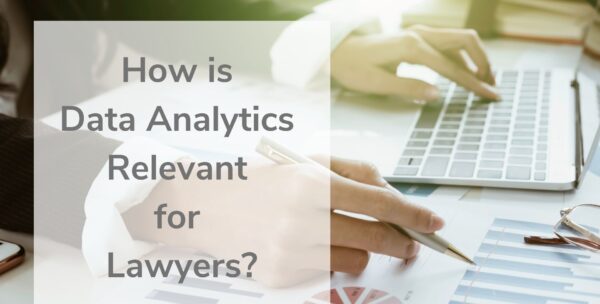
Incorporating the power of predictive analytics and machine learning algorithms in your legal practice, facilitated by AI for lawyers, catapults your decision-making processes to unprecedented heights. Through the lens of AI for lawyers, envision a scenario where predicting case outcomes is not a matter of chance but of data-driven science.
Predictive analytics and machine learning enable you to harness vast datasets encompassing many legal cases. These sophisticated algorithms analyze these datasets, identifying patterns and correlations that human cognition might miss. By recognizing these intricate connections, you gain invaluable insights into the probable outcomes of legal cases. This predictive prowess is not just a strategic advantage; it’s a transformative tool, allowing you to provide your clients with informed counsel backed by data-driven predictions.
These advanced legal AI solutions empower you to delve deep into the intricacies of judges’ decisions. Machine learning algorithms dissect past rulings, discerning the underlying factors influencing these decisions. This granular analysis goes beyond a superficial understanding, offering profound insight into judicial reasoning. Imagine being able to anticipate a judge’s inclinations based on historical data, ensuring that your legal strategies are finely tuned to align with their preferences. This deep understanding of judicial decisions grants you a strategic edge in courtroom battles, enhancing your ability to craft compelling arguments tailored to the specific nuances of each case.
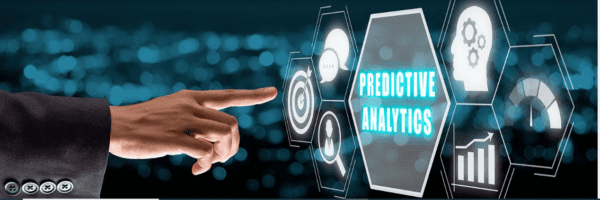
Additionally, predictive analytics in AI for lawyers extends far beyond individual cases; it paints a panoramic view of legal trends. By processing extensive datasets, AI algorithms identify emerging patterns, enabling you to grasp the shifting landscapes of various legal domains. These insights into legal trends are invaluable, guiding your practice to be proactive rather than reactive.
Understanding the evolution of laws and regulations, thanks to predictive analytics, positions you at the forefront of your field. In a world where legal dynamics constantly evolve, these insights foster adaptability and foresight, ensuring your legal strategies are not just current but anticipate the future events of the legal landscape. Through the integration of predictive analytics and machine learning, your legal practice transcends traditional boundaries, embracing a future where decisions are not just educated guesses but finely calculated probabilities, all driven by the transformative capabilities of AI for lawyers.
Virtual Law Assistants and Chatbots
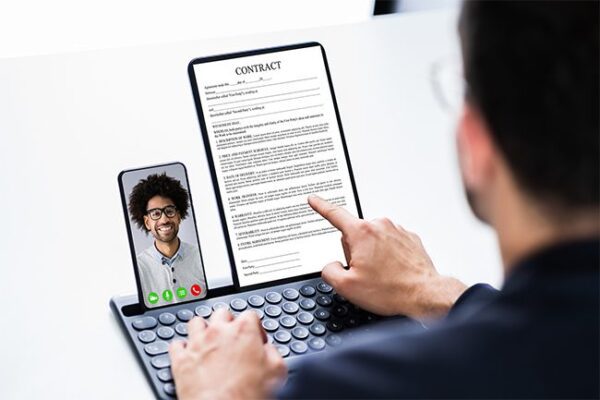
In the ever-evolving landscape of AI for lawyers, the development and deployment of virtual legal assistants and chatbots represent a significant leap forward in the legal profession. Think of these AI-driven systems as your 24/7 partners, ready to respond instantly to legal queries and assist you in numerous ways. These technologies, categorized under AI for Lawyers, are designed to streamline client interactions and optimize your practice.
Virtual legal assistants and chatbots are the ultimate deal in responsiveness. They can engage with your clients around the clock, promptly answering their legal questions and offering preliminary advice. This level of immediacy is not just a convenience; it’s a reflection of your commitment to providing quality service. Clients appreciate obtaining quick, accurate responses to their queries, establishing trust and reliability in your practice. These AI-driven systems can also help manage your schedule, book appointments, and ensure your time is allocated efficiently. This optimization is a testament to the efficiency and precision that legal AI solutions bring to your day-to-day operations.
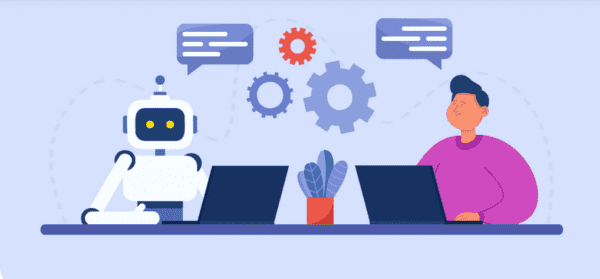
Moreover, the capabilities of virtual legal assistants and chatbots extend beyond routine administrative tasks. They can offer preliminary legal advice based on pre-defined parameters and a vast knowledge base. While not a substitute for legal expertise, these AI systems can help answer common questions, provide information about legal procedures, and even offer insights on various legal matters. These AI-driven systems are your partners in delivering efficient, client-centric legal solutions, marking a significant advancement in the era of artificial intelligence.
AI for lawyers and Document Automation
Think of streamlining your document creation and management processes with the incredible efficiency of AI for lawyers. Using AI as a document automation tool represents a significant leap in legal practice optimization. With AI-driven systems at your disposal, the tasks of drafting legal documents become not just easier but remarkably precise.
These legal AI solutions save you time and substantially reduce the likelihood of document errors. With AI for lawyers, you get software that can sift through vast data, extracting the essential information required for your document creation. These systems thoroughly analyze the content and ensure that every clause, reference, and formatting adheres to the highest standards. This level of precision is not just a convenience; it’s a testament to the transformational power of AI in legal document management.

AI-driven document automation offers a streamlined approach to drafting. These tools can generate legal documents promptly and consistently, regardless of the complexity or length of the paper. As a result, you will save time and no longer have to labour over repetitive tasks that AI can easily handle. This automation enhances your efficiency and minimizes the risk of human error, ensuring that your documents are always accurate and in compliance with legal standards. In essence, integrating AI in document automation empowers you to focus on the strategic aspects of your work, confident that the routine and critical tasks are handled with the precision and speed that AI for Lawyers brings to your practice.
AI for lawyers in Litigation and eDiscovery
When embracing the potential of AI for lawyers, it’s essential to understand the profound transformation it brings to the litigation process, particularly in eDiscovery. AI for Lawyers has ushered in a new era where AI technologies revolutionize how legal professionals approach the daunting task of sifting through massive volumes of electronic data. These cutting-edge legal AI solutions stand as invaluable allies, streamlining the discovery process and enhancing the overall efficiency of legal proceedings.
In a litigation context, AI’s proficiency ensures that legal teams access crucial evidence swiftly. AI-driven eDiscovery tools alleviate the burden of manual reviews. Lawyers can avoid the time-consuming, error-prone process of manually sifting through electronic documents, minimizing the likelihood of missing critical information. This precision isn’t just a matter of convenience; it’s a strategic advantage that allows legal professionals to focus their expertise on crafting stronger arguments and building a compelling case.
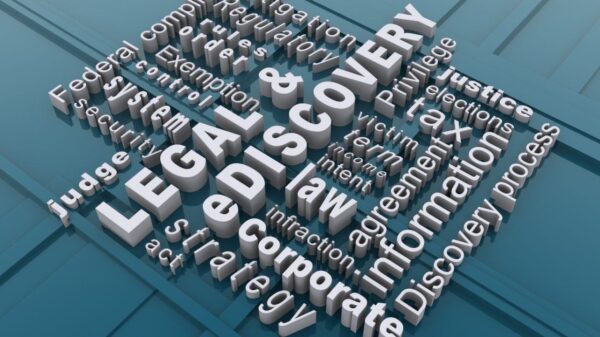
Ethical and Legal Implications of AI for Lawyers
Digging into the integration of AI for lawyers, addressing the ethical and legal dimensions is crucial. As technology advances, the legal profession faces intricate challenges related to data privacy, algorithmic bias, and lawyers’ ethical responsibilities when employing AI tools. One primary concern revolves around data privacy.
With AI systems, vast amounts of sensitive client information are processed, raising questions about how this data is handled, stored, and protected. Ethical considerations demand a meticulous approach, ensuring client confidentiality remains sacrosanct even in the digital realm. Lawyers, while adopting legal AI solutions, must guarantee that these technologies adhere to the highest data security standards, maintaining attorney-client relationships, trust, and integrity.
Another significant issue is bias in algorithms. AI systems are only as unbiased as the data they are trained on. If historical legal data contains preferences, AI algorithms can perpetuate these biases. This can lead to unequal treatment and unfair outcomes in the legal context. Lawyers employing AI tools must critically assess and mitigate these biases. They are responsible for ensuring that their algorithms are transparent and that their decision-making processes are auditable. Scrutiny and vigilance are paramount, emphasizing the need for continuous monitoring and adjustment to prevent inadvertent discrimination and uphold the principles of fairness and justice.
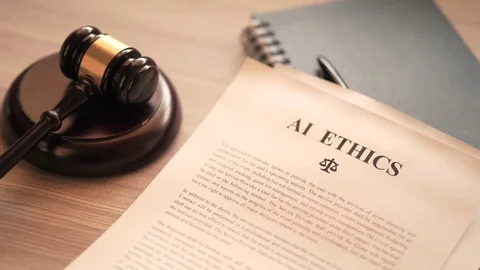
Further, lawyers have a profound responsibility when utilizing AI in legal practice. As stewards of the law, lawyers must exercise due diligence in understanding the limitations and capabilities of the AI tools they employ. This responsibility extends to explaining to clients how AI is used in their cases, demystifying the technology, and ensuring that clients know the potential impact on their legal proceedings.
Lawyers must stay informed about the evolving landscape of AI, be mindful of ethical considerations, and actively engage in shaping the ethical guidelines and regulations that govern the use of AI in the legal profession. By addressing these ethical and legal implications thoughtfully, the legal community can harness the power of AI responsibly, enhancing the delivery of legal services while upholding the integrity and ethics that define the noble profession.
Conclusion
The integration of AI in the legal profession is reshaping the way lawyers work and interact with clients. From revolutionizing legal research and contract analysis to empowering predictive analytics and virtual legal assistants, AI in legal practice enhances efficiency, accuracy, and responsiveness in the legal field, making it more efficient, accessible, and client-centric.
However, legal professionals must address the ethical and legal implications of adopting AI, such as data privacy and algorithmic bias. Lawyers must exercise due diligence in understanding AI’s capabilities and limitations, ensuring transparency and fairness. As Artificial Intelligence for lawyers evolves, responsible implementation of legal AI solutions will undoubtedly define the future.
